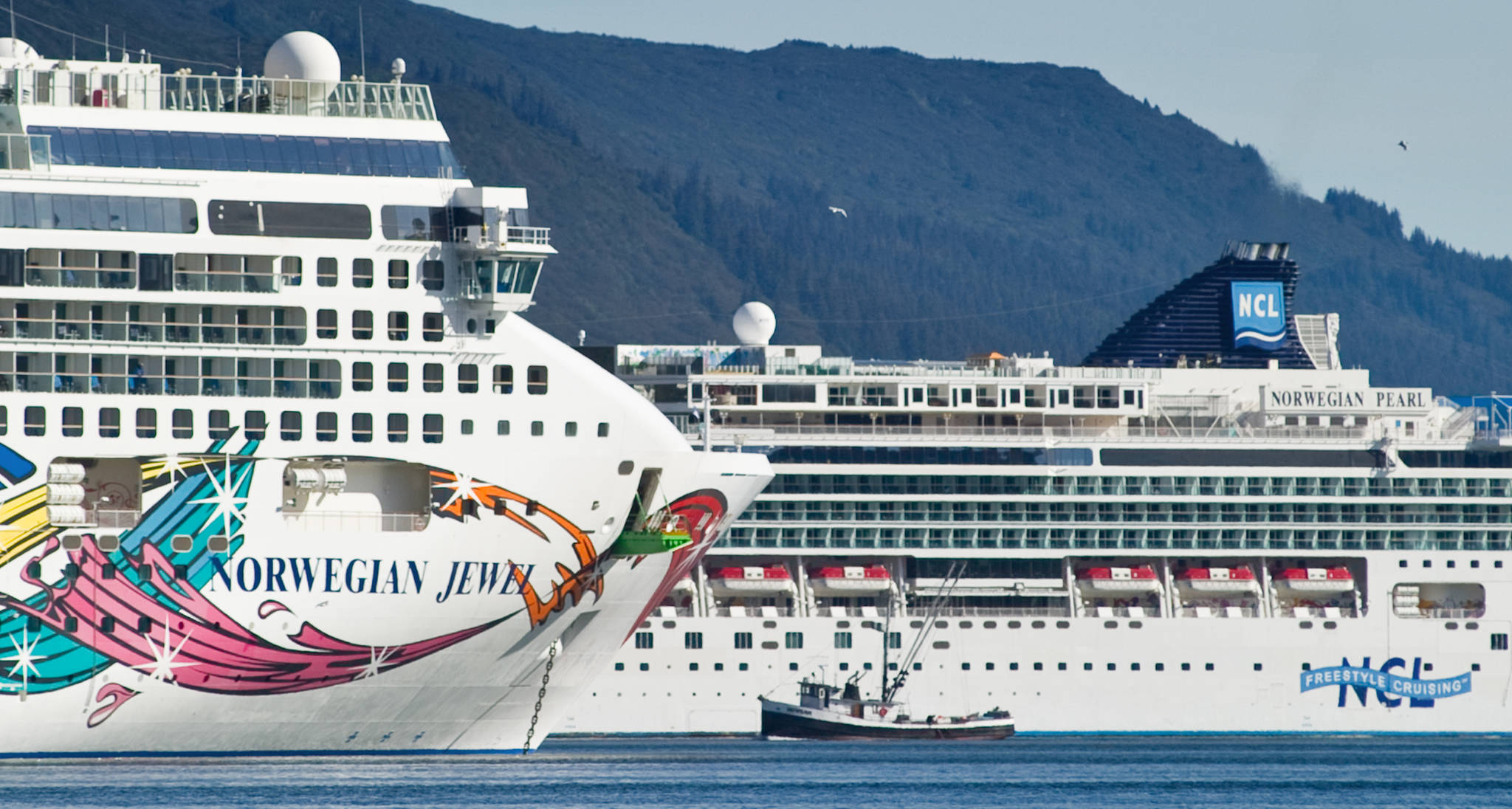Air quality last summer in downtown Juneau was generally good, according to the results of an Alaska Department of Environmental Conservation study.
During the study, two types of sensors were placed around downtown Juneau to monitor particulate matter and sulfur dioxide in the air. DEC stated Wednesday in a news release that while there were short periods of times in which air quality appeared to be affected by cruise ship emissions, cruise ships did not increase air pollution to a concerning level.
“There are a lot of factors that can contribute to downtown Juneau’s air quality in the summer because it’s a busy area,” said Alice Edwards, Air Quality Division Director, in the release. “These include food carts, buses, taxis and local traffic, as well as the cruise ships. There were also open burns and summer road construction last summer. While all of these sources contribute to air pollution, the data show that they didn’t create an overall atmosphere of poor air quality downtown.”
Only a few full days observed during the study had air quality ratings of “Moderate” to “Unhealthy for Sensitive Groups” during the season, according to DEC, and those were attributed to smoke from wildfires in British Columbia. There were periods of one or two hours observed at times throughout the summer when air quality fell below the “Good” category.
DEC Staff looked at meteorological data and web cam footage and found that these periods often aligned with cruise ships maneuvering in and out of the port, which requires heavier engine use than when they are tied up, according to DEC.
Early in the 2019 cruise season, cruise line companies worked together to reduce their impacts on Juneau air quality by implementing changes aimed at reducing emissions. These changes included reducing idle times in the harbor and switching to a low sulfur marine fuel while in port.
The study was prompted in part by 2018’s record level of cruise ship air emissions complaints and general public interest.
“It is difficult to compare Juneau’s 2019 air quality to that of previous years because we didn’t have monitoring equipment in place before last summer,” Edwards said in a release. “However, DEC received fewer complaints from Juneau residents during the 2019 season than in the previous two years.”
[2019 cruise ship data may surprise you]
In light of COVID-19 effectively canceling tourist season for large ships, DEC will use this summer as an opportunity to collect baseline data for air quality, according to DEC.
DEC will deploy survey-grade sensor pods, which are expected to more accurately measure particulate matter than last year’s relatively simple sensors, as well as sulfur dioxide data at one hour resolution in order to detect short term air impacts.
The department used a network of low-cost PurpleAir PA-II air quality sensors, which have been through rigorous testing but are still limited in what they can detect, according to Barbara Trost, environmental program manager for DEC.
“These monitors were never intended to be a substitute for regulatory monitoring, this was a pilot program,” Trost said.
Regulatory monitors are much more sophisticated pieces of machinery, Trost said, and can cost up to $25,000 as opposed to the $230 per unit for PurpleAir monitors. DEC used the cheaper monitors to determine if and where using a regulatory monitor would be most useful.
But the results of the study didn’t merit use of a regulatory monitor, Trost said.
“We decided there’s no concerns from any of the sources in Juneau,” Trost said. “We decided not to move forward with a regulatory site because the readings were mostly good.”
However, just because the study showed mostly good air quality in Juneau, that doesn’t mean there aren’t harmful pollutants in the air, according to Karla Hart who’s involved with the local group Juneau Neighborhoods Affected by Tourism.
“It’s not a switch that you are just at risk or not at risk,” Hart said, referring to the various classifications used in the study.
Hart questioned how much difference there was between what constitutes good versus harmful in the air quality classifications.
“Even if it doesn’t meet a regulatory standard doesn’t mean it’s not harmful,” Hart said.
Hart pointed out the study acknowledges cruise ship companies made efforts to reduce their emissions in 2019, something she appreciates and hopes to see continue.
“That’s great,” she said of companies’ efforts. “Is there a commitment or is that just to buy them that year?”

